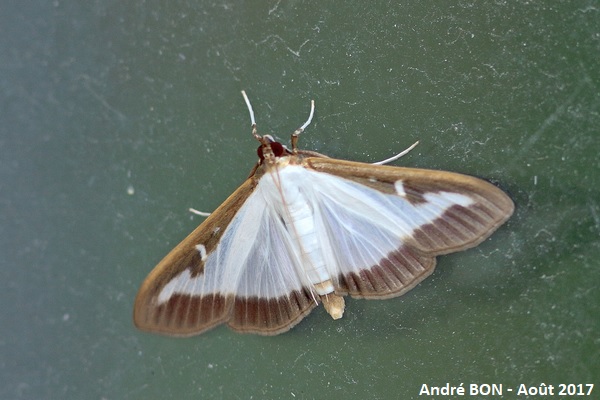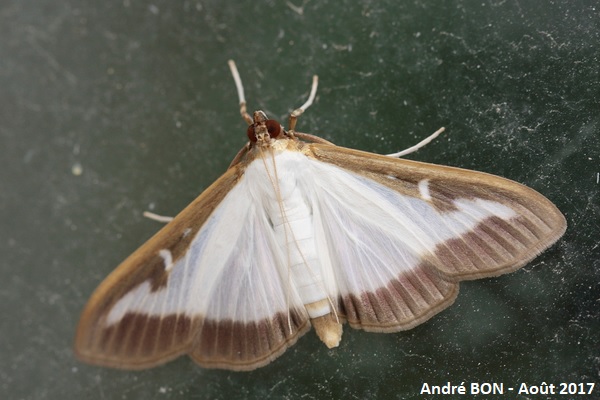

| Box Tree Moth (Cydalima perspectalis (Walker, 1859)) |


|
|
Scientific name: Cydalima perspectalis (Walker, 1859) Common name: Box Tree Moth French name: Pyrale du buis Order: Lepidoptera Suborder: Heterocera Family: Crambidae Subfamily: Spilomelinae Wingspan: 40-45 mm. Biotope: Forests, parks and gardens where the host plants (Box Tree) grow. Geographic area: Originated from eastern Asia (Japan, China, Korea, Taiwan, India, etc.), the Box Tree Moth was introduced to Germany about year 2006 and quickly spread to many European countries. Flight time: March to October. Number of generations : 2 to 3. Caterpillar: Light green and longitudinally streaked with darker green. The head is shiny black. There are rows of black tubercles with long isolated white hairs. Host plant: Boxwood (Buxus). The damage can be significant to the plantations. |
The box tree moth appear in two distinct forms. The most common form is pearly white in colour with a broad light brown border on the costal edge and at the margin of the fore wings. There is a half-moon shaped white spot near the costal edge at mid-length of the fore wing. The hind wings are pearly white in colour with the same light brown border at the margin. There is a rarer form, entirely light brown, except for the half-moon white spots on the fore wings. The Box Tree Moth overwinters as a young caterpillar sheltered inside a cocoon. The Box Tree Moth is attracted to light. |
| [To know more about the Box Tree Moth] [Next picture] [Top] |

|
Here is the pale, most common form of the Box Tree Moth. It entered the house, attracted to light, and it is photographed here on the light fixture that attracted it. |
| [To know more about the Box Tree Moth] [Previous picture] [Top] |

|
The length of the antennae is really impressive. They almost reach the tip of the abdomen. |